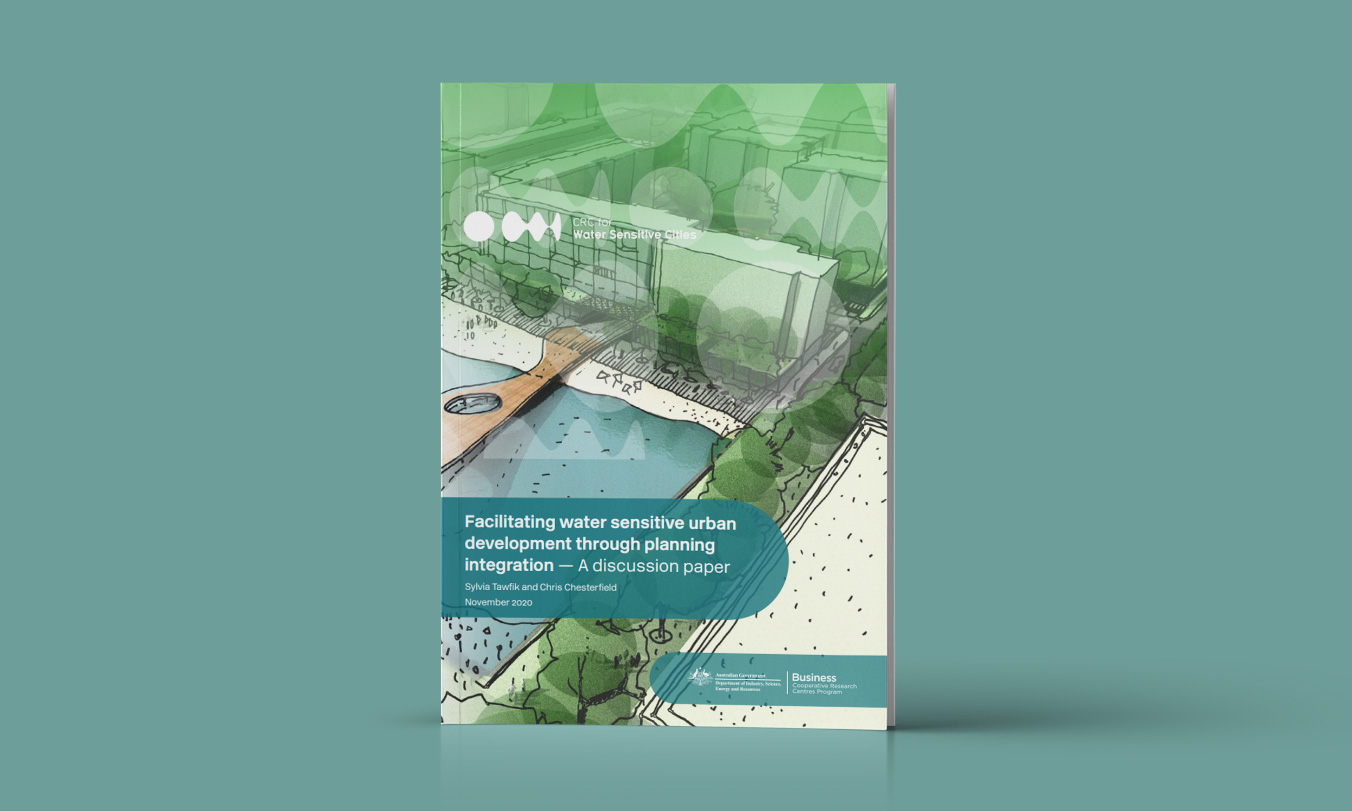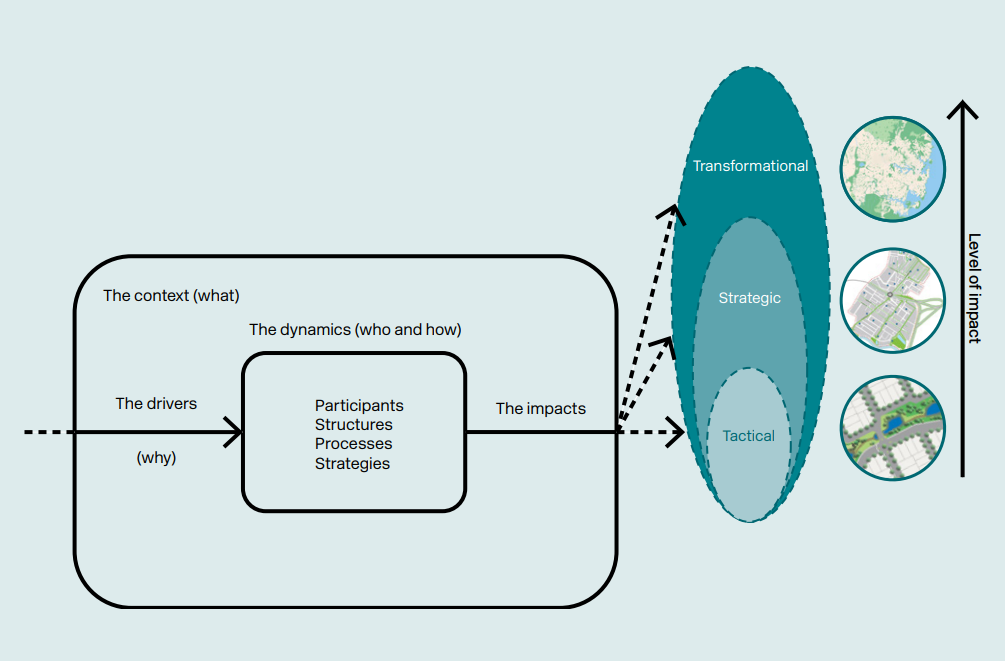New resources to support integrated urban and water planning
Our IRP3 program: Integrated Research Project 3: Guiding integrated urban and water planning has just published papers addressing its two core areas of inquiry: planning and collaboration.
The first paper looks at facilitating water sensitive urban development through planning integration, and the second considers designing cross-sectoral collaborations for integrated urban and water planning.
IRP3 has been examining how different types of urban development can be deliberately guided to achieve water sensitive outcomes and how an integrated approach to urban and water planning can facilitate such outcomes.

Facilitating water sensitive urban development through planning integration
Facilitating water sensitive urban development through planning integration: a discussion paper takes a step towards answering what ‘integration’ means in the water sensitive cities context. Integration is often described as fundamental to realising holistic city shaping aspirations like water sensitive cities which demand strong linkages between urban and water planning activities. But this paper dives deeper so we can better understand what we truly mean by integration and, more importantly, how can it be operationalised in practice.
This discussion paper draws on academic literature and case study research across Australia to explore concepts and considerations that are key to integrating urban and water planning.
Practitioners seeking to advance water sensitive outcomes need to consider two aspects:
- the type and quality of planning instruments (described as ‘substantive integration’). The paper highlights the importance of coherent planning instruments and describes four key attributes that can improve the design of instruments
- the way stakeholders work together to make decisions and implement planning instruments (described as ‘procedural integration’), recognising that well-designed instruments are not enough on their own.
When considered together, these aspects can be characterised as different degrees of integration and used to determine the type of interventions required in any given context.
Facilitating water sensitive urban development through planning integration: a discussion paper, which can be downloaded here, is particularly relevant to planners, policy makers, legislators and anyone with an interest in governance. It is part of a suite of outputs produced by IRP3 to help practitioners elevate water considerations in urban planning.
Designing cross-sectoral collaborations for integrated urban and water planning
This paper simplifies the process of establishing collaborative governance for integrated urban and water planning by breaking it down into ‘why, what, who and how’ elements, to arrive at the context, drivers, dynamics and impact of the collaborative process:
- The ‘why’ – Why are the collaborations needed? What drivers are present? What benefits can be gained?
- The ‘what’ – What is the context within which we collaborate? What are the enablers, constraints, opportunities and challenges?
- The ‘who’ – Who should be involved in the collaborative process? What role should different actors play?
- The ‘how’ – How should the collaboration be structured? What strategies and processes are needed to have a well-functioning collaboration?
Each of these elements should be considered in relation to desired impact. Different levels of impact are possible, ranging from tactical impact (project level change), strategic impact (changing aspects of a sector or practice), and transformational impact (sector-level change).

Figure 1. Areas of consideration in designing collaborative governance
Practitioners can work within this framework to design the right incentives, processes and structures, and to identify the appropriate stakeholders. The paper gives tools and tips to support practitioners through this process.
You can download this paper here.
You can also download previous case study reports from IRP3:
- Enabling water sensitive greenfield development in Townsville
- Ideas for Townsville: Greening the public realm in a dry tropics city
- Brabham Action Learning Partnership: Case report
- Enabling water sensitive urban development: planning and governance opportunities for Perth
Watch this space for more guidance on integrating urban and water planning.